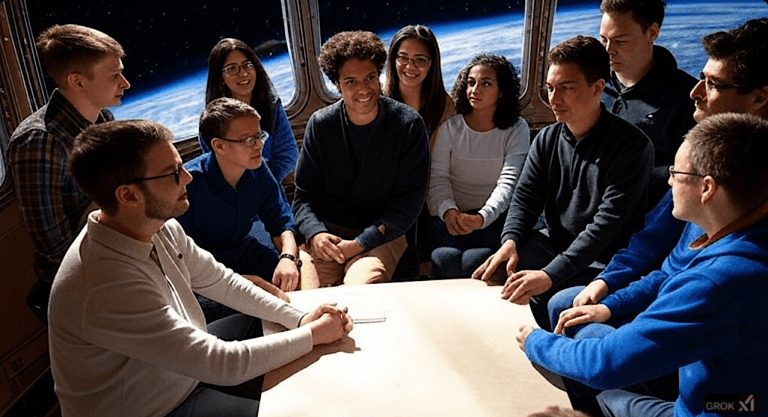
NASA Planetary Science Summer School — Grok via Astrobiology.com
Through March 18, 2025, NASA is encouraging applications for its 37th annual Planetary Science Summer School. Offered by the Jet Propulsion Laboratory in Pasadena, California, PSSS is a three-month early career development experience aimed at preparing the next generation of mission leaders in planetary science and engineering. Participants learn the process of developing a robotic space mission based on scientific hypotheses in a concurrent engineering environment while gaining in-depth, first-hand insight into mission design, mission life cycle, costs , the timetable and the compromises inherent in each.
- Session 1: Preparatory sessions from May 8 to July 24, 2025.
Culminating week with JPL Team X from July 28 to August 1, 2025. - Session 2: Preparatory sessions from May 22 to August 7, 2025.
Culminating week with JPL Team X from August 11-15, 2025.
A Q&A webinar on the PSSS Information App will take place on Thursday, February 12, 2025 from 1:00 p.m. – 2:00 p.m. PST. He will describe the PSSS experience and discuss tips for submitting a strong application. Registration is required (see link below).
Applicants with the following education and professional experience are eligible: PhD candidates in science and engineering (advancement to candidacy required), recent PhDs (up to three years beyond their PhD), postdocs, junior professors with doctorates. .D level students. and master’s degrees in non-research engineering within six to nine months of obtaining their diploma will be considered based on available places.
Open to U.S. citizens and lawful permanent residents and a limited number of foreign nationals from undesignated countries living in the United States at the time of application and throughout the session. Participation is free and candidates from diverse backgrounds are particularly encouraged to apply. Diversity, equity, and inclusion are important to us, and we strive to create a welcoming environment where participants’ unique contributions and perspectives are valued.
The PSSS roughly equates to a workload equivalent to a rigorous 3-credit upper-level course, requiring an average effort of 10-12 hours per week. Participants spend the majority of the first 10 weeks in preparatory webinars acting as a science mission team, before spending the culminating final week being mentored by JPL’s Advanced Project Design Team, or “X Team.” to refine the design of their mission concept and then present it. to a mock review panel comprised of experts from the NASA Center.
Astrobiology, Astronomy, Geology, Astrophysics,


